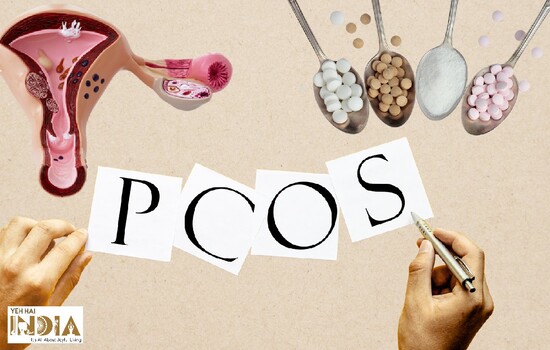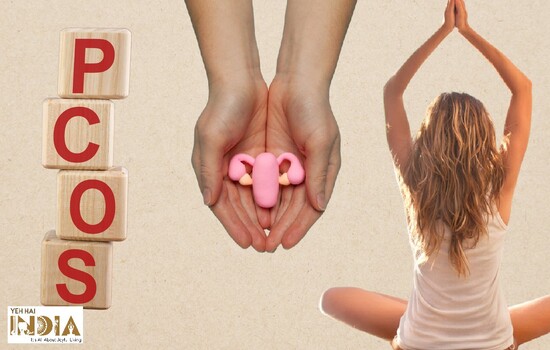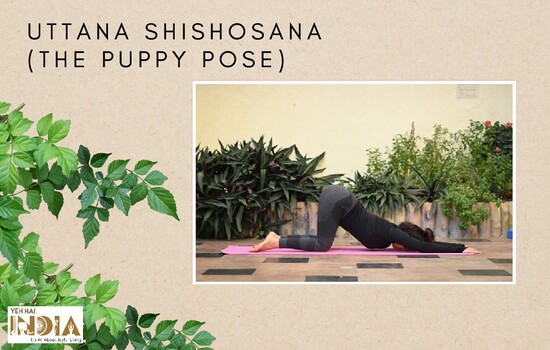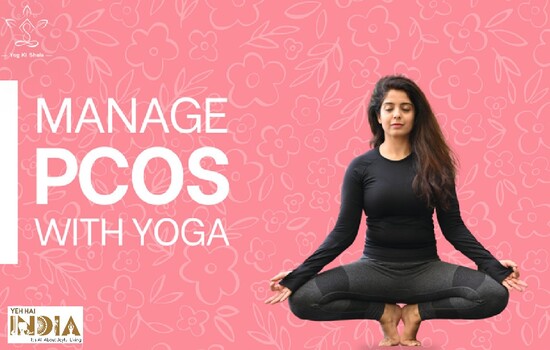Have you been recently diagnosed with PCOS or living with this condition for years?
As you might already know polycystic ovarian syndrome (PCOS) is a condition caused due to hormonal imbalance in women not only of reproductive age but also in adolescent girls and post-menopausal women.
Polycystic Ovarian Syndrome is characterized by excess production of androgen in the body which is a male hormone. This may cause fibroids (clusters of follicles) in the ovaries leading to cysts and in some cases endometriosis and infertility.
This condition is categorised as a lifestyle disorder as most of the time it happens due to improper lifestyle and unhealthy routine.
Symptoms Of PCOS:

The most common symptoms experienced by women with PCOS are:
- Irregular or no periods
- Lack of ovulation
- Hirsutism – excessive hair growth in areas such as the face, chest, back and buttocks
- Alopecia – excessive hair loss or thinning
- Weight gain and/or difficulty in losing weight
- Acne
- Mood swings
- Irregular sleep
- Stress & anxiety
- Edema – Inflammation
- Bloating
Serious complications or symptoms of PCOS include:
- Infertility
- Type 2 diabetes mellitus
- Endometrial cancer
- Depression
These complications occur due to hormonal imbalance, elevated estrogen, and androgen levels, insulin resistance and obesity. The symptoms most commonly begin at puberty and worsen over time.
Recommended Story – Bhramari Pranayama – Yoga for Mental Detox
Yoga For PCOS:

What if someone told you that with a small lifestyle change these symptoms you’ve been dealing with could be managed and get better? Would you give it a try?
Yoga is the answer! The word “Yoga” is derived from the Sanskrit word “Yuj” which means to join or unite, with the aim of this ancient practice being self-realization in order to overcome any kind of suffering.
The practice of yoga, specifically the asanas help in opening up the pelvic region while performing pranayama helps calm the mind.
According to a recent study, addition of yoga to your daily lifestyle with its mindful practice just 3 times a week can help you manage PCOS as the asanas help regulate the endocrine system, reduce serum cortisol also known as the stress hormone and balance other neural hormones, hence improving the reproductive function.
Not only this but practicing yoga regularly also helps in reducing the androgen levels hence helping in the management of hirsutism and acne. Performing yoga asanas also normalises insulin release, thus preventing the complication of type 2 diabetes mellitus.
Now, if you’re wondering which yoga asanas would benefit you the most and help you achieve this, let us list down 5 simple asanas for you to start with.
5 Yoga Poses To Manage PCOS:
1. Dhanurasana (The Bow Pose)

This asana increases blood circulation in the pelvic region ,thus helping to stimulate the reproductive organs.
It also regulates the menstrual flow, and relieves menstrual discomfort which are two major problems that women with PCOS undergo.
Daily practice of this asana strengthens the reproductive organs as well as helps in relieving indigestion and constipation.
2. Setu Bandhasana (The Bridge Pose)

This asana regulates thyroid function which remains disturbed in women with PCOS.
It helps in controlling mood swings and also reduces stress, anxiety, and depression.
It also relieves the symptoms of menopause and menstrual pain by relaxing and activating the organs in the abdominal region.
3. Supta Baddha Konasana (Reclining Butterfly Pose)

This asana opens up the pelvic region and mainly helps in calming the mind, body, and spirit. It also helps to soothe menstrual discomfort.
This is an excellent restorative pose that supports the spine, and back while gently releasing tension from the shoulders and chest.
4. Prasarita Padottanasana (Wide-legged Forward Bend)

This asana strengthens the back muscles by improving energy circulation and increasing the length of your spinal column.
It stretches and relaxes the abdominal muscles and hamstrings for better support to the pelvic floor muscles.
The shoulders and neck also get strengthened and aligned with regular practice of this posture.
5. Uttana Shishosana (Puppy Pose)

This asana helps in relieving symptoms of chronic stress, tension and insomnia.
It massages the lower abdomen, activating the abdominal muscles and helping them to work better by aiding in digestion, reducing bloating, and reducing stubborn abdominal fat.
It enhances blood circulation as the blood flows towards the chest and shoulders. It also strengthens the hip and back muscles.
So now that you know how yoga can help you overcome hormonal issues and PCOS, you must take advantage of its benefits for managing PCOS.
Try these asanas to find relief from symptoms accompanying PCOS and share your experience with us. We bet you, it will be worth the time you invest in it!
Recommended Story – 10 Yoga Asanas To Get Rid Of Back Pain By Ira Trivedi










